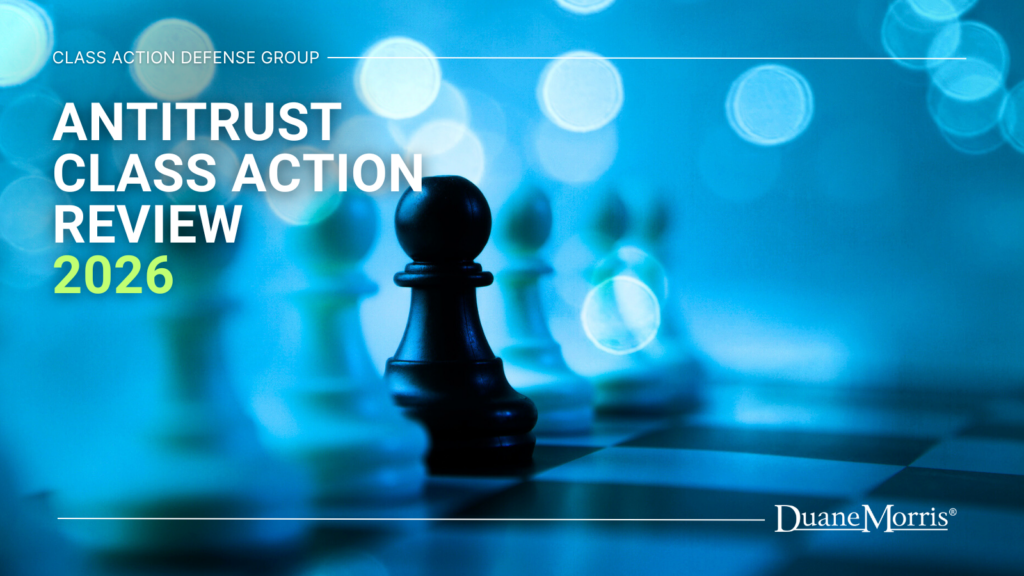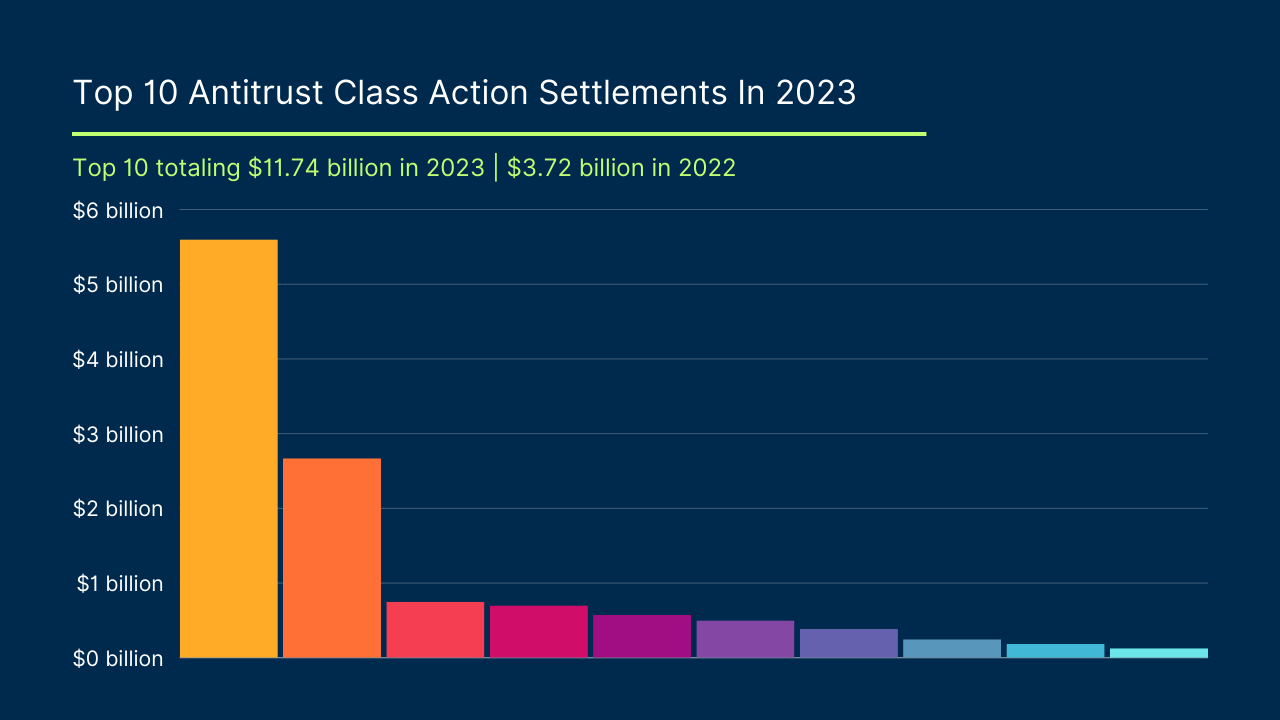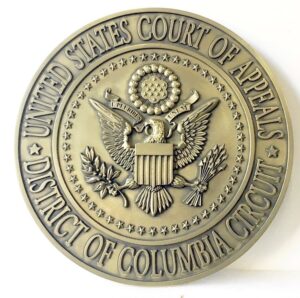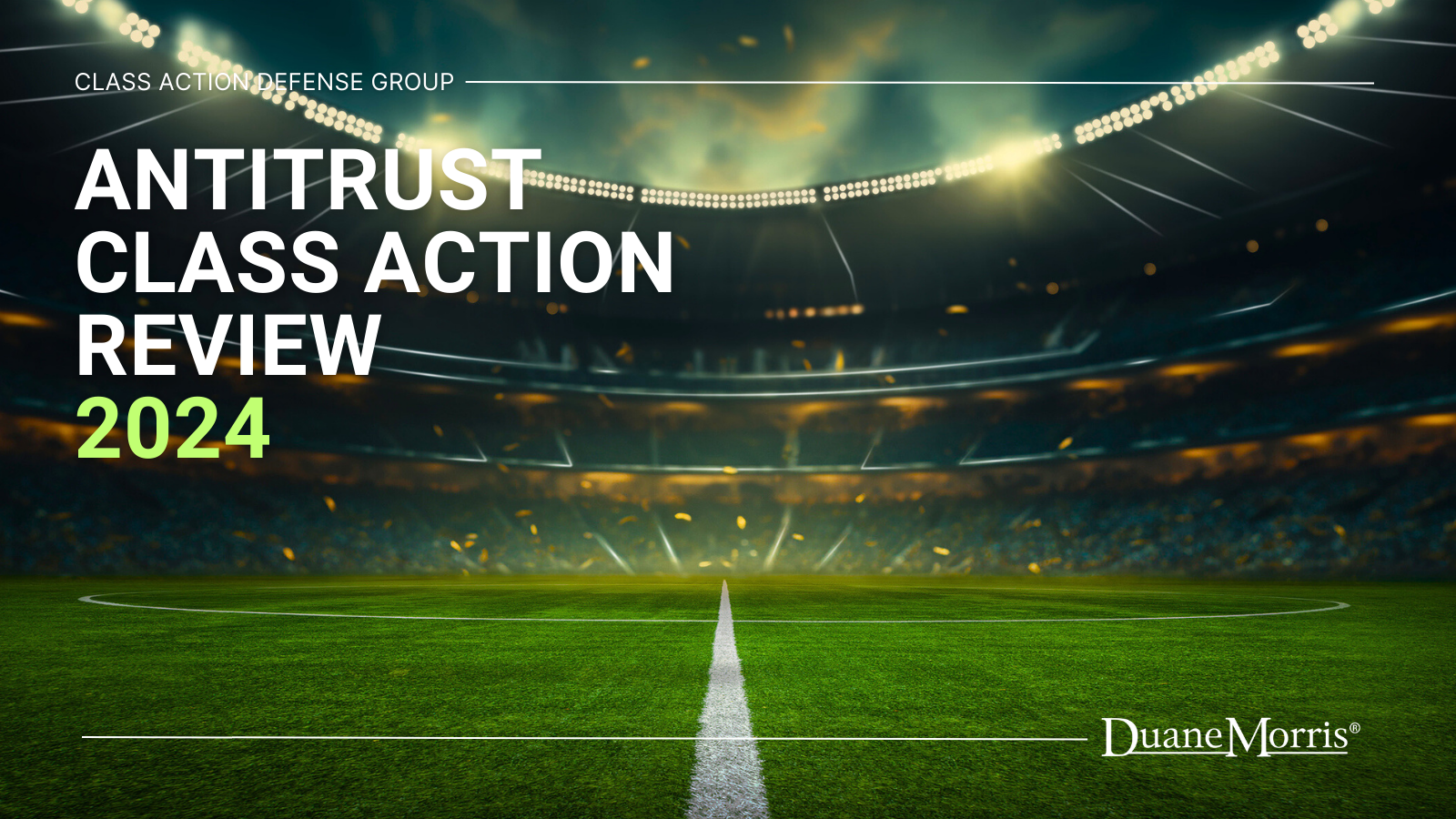By Sean McConnell and Gerald L. Maatman, Jr.
Duane Morris Takeaways: On June 6, 2025, Judge Claudia Wilken issued a highly anticipated 76-page order approving the proposed settlement in House v. NCAA, Oliver v. NCAA and Hubbard v. NCAA (collectively, the House settlement). As discussed in a prior Alert, the settlement—between the NCAA and its Power Five conferences (Atlantic Coast, Big Ten, Big 12, Pac-12 and Southeastern) and a class of current and former NCAA athletes—provides for approximately $2.8 billion in back-pay damages and sets forth the initial revenue share framework that will allow colleges and universities to offer direct payment to their student-athletes.
Judge Wilken’s approval of the settlement follows her directive for multiple revisions to the agreement initially presented at the April 7, 2025, final approval hearing. During that hearing and in the ensuing two months, Judge Wilken expressed significant concerns, particularly regarding whether the NCAA would agree to grandfather in current athletes to protect them from potentially losing scholarships under the new House settlement framework. The judge was ultimately satisfied with the modifications made, and the revised settlement is set to become effective on July 1, 2025.
While the settlement is certain to face additional legal challenges and scrutiny, the NCAA’s new compensation model will mirror elements of professional sports leagues, marking the official end of the “amateurism” era in college athletics.
Key Settlement Provisions
Back Pay
As finalized, the House settlement requires the NCAA and its Power Five conference members to pay approximately $2.8 billion in damages, characterized as “back pay,” to compensate student-athletes for the denial of name, image and likeness (NIL) opportunities under prior NCAA eligibility rules. This component of the settlement was not contested during the approval process. The settlement class—subject to certain exclusions—includes all Division I student-athletes who competed from 2016 to the present, reflecting the applicable statute of limitations. Compensation will be distributed to eligible athletes to account for lost NIL, video game and broadcast-related opportunities that were previously restricted under NCAA rules.
Permissive Revenue Sharing
With Judge Wilken’s approval, the House settlement ushers in a more professionalized era of college sports, effective July 1, 2025. Participating NCAA Division I institutions will be permitted to directly compensate student-athletes with up to 22 percent of the school’s average annual athletic revenue derived from media rights, ticket sales and sponsorships. This amount is capped at $20.5 million per school in the first year of the agreement, with the cap projected to increase by approximately 4 percent annually over the 10-year term of the settlement.
Importantly, the court-imposed “salary cap” excludes contributions from boosters or alumni groups, third-party NIL deals, traditional scholarships and any payments made prior to July 1, 2025.
Participation in the revenue-sharing framework is entirely voluntary. Institutions are not obligated to adopt the model, nor are those that do required to pay student-athletes the full $20.5 million annual cap. The Ivy League, for example, has opted out entirely, citing its recent antitrust victory affirming its policy against athletic scholarships. As such, Ivy League schools will continue to operate under traditional amateurism principles and will not participate in the new compensation structure.
For schools that elect to opt in, the settlement permits direct athlete payments from institutional revenues, subject to the cap. While the model introduces a regulated mechanism for athlete compensation, it also has the potential to create competitive disparities. Institutions with larger alumni bases and robust booster support may continue to offer additional NIL compensation outside the cap, which could significantly enhance their recruiting advantage.
Moreover, few institutions may be in a financial position to fully utilize the cap. Outside the Big Ten and SEC—whose media contracts generate substantial revenue—most Division I schools lack the revenue base to allocate $20.5 million (or more in future years) to athlete compensation. Data indicates that approximately 75 percent of athletic revenue at many institutions comes from football, with an additional 17 percent from men’s and women’s basketball. This structure disproportionately benefits programs with strong football revenues and places smaller or football-absent schools (e.g., Big East basketball programs) at a disadvantage, as their 22 percent revenue share may fall well below the cap.
As such, institutions must conduct a thorough financial and legal assessment to determine whether opting into the revenue-sharing model is feasible. Those that opt in must also ensure that their distribution plans are compliant with the settlement’s terms and applicable legal requirements. In many cases, a significant portion of compensation is expected to flow to revenue-generating sports, potentially pressuring athletic departments to reevaluate their support for nonrevenue sports. This could lead to budget cuts, program reductions or reclassification of certain sports to club-level status.
Institutions adopting the revenue-sharing model should take care to develop clear and compliant agreements and implementation plans. Legal counsel, if engaged early, can help ensure compliance with Title IX, labor laws and evolving NCAA regulations.
Scholarship Limits
A key component of the House settlement is the elimination of NCAA-imposed scholarship limits, allowing institutions to offer a greater number of full or partial scholarships to student-athletes. This shift grants schools increased flexibility in structuring team rosters and allocating financial aid, aligning more closely with professional team management models.
An earlier draft of the settlement included roster limits that would have gone into immediate effect and, in some cases, would have resulted in current athletes losing their roster spots or scholarships. Judge Wilken raised significant concerns about this approach, particularly because affected athletes would have had no opportunity to opt out of the settlement to preserve their eligibility or position.
In response to the court’s concerns, the NCAA and plaintiffs’ counsel revised the agreement to include a “grandfathering” mechanism. Under the final settlement terms, schools may elect to retain current student-athletes and recruits on their rosters for the duration of their NCAA eligibility without those individuals counting toward any new roster or scholarship limits. This adjustment is intended to ensure continuity and fairness for athletes already enrolled or committed.
Despite this revision, certain objectors challenged the adequacy of the provision, arguing that it fails to protect athletes at institutions that choose not to implement the grandfathering option. In rebuttal, the NCAA and plaintiffs’ counsel noted that roster spots in college athletics have never been guaranteed and are traditionally subject to coaching decisions and program needs.
Judge Wilken ultimately approved the revised provision, concluding that it provided a reasonable and sufficient remedy under the circumstances.
Pay-for-Play and Evaluation & Conditional Approval of NIL Deals
Although the settlement creates a path for more direct compensation of student-athletes, it includes significant oversight mechanisms. Any NIL deal exceeding $600 must be reported to and reviewed by the NCAA. This relatively low threshold ensures ongoing NCAA involvement in most NIL arrangements.
The NCAA retains the authority to approve NIL agreements only if they meet two criteria:
- The deal must serve a valid business purpose, meaning it must promote or endorse goods or services offered to the general public for profit; and
- Compensation must be commensurate with the value of similarly situated individuals, including nonathletes.
To facilitate fair compensation, Deloitte has been appointed to assess the market value of NIL agreements based on 12 evaluative factors, including the athlete’s social media reach, athletic performance, geographic market, deal duration and scope, and potential red flags indicating impropriety. These criteria, however, leave considerable room for litigation over their precise interpretation, requiring schools to invest significant resources in research to accurately determine fair market values ahead of Deloitte’s assessments. Meanwhile, the NCAA retains oversight by mandating that all NIL agreements serve a “valid business purpose,” defined broadly as promotion or endorsement of goods or services offered to the general public for profit, and that compensation be “commensurate with the NIL value of similarly situated individuals.” This framework grants the NCAA substantial discretion to approve or reject NIL agreements, ensuring that payments align with rates and terms paid to comparable individuals outside the institution who possess similar NIL value.
Despite this framework, it remains unclear how the NCAA will define “similarly situated individuals” and apply this standard consistently—leaving open the possibility of further legal disputes.
Does This Settlement Solve All Outstanding Legal Issues?
Although Judge Wilken’s approval was expected, it is not the end of this story. There are still many open legal questions and issues that this settlement did not address and that will be the subject of ongoing litigation for years to come:
Ongoing Litigation for Opt-Out Plaintiffs
Student-athletes who opted out of the settlement continue to pursue their claims (e.g., Fontenot v. NCAA), which will now proceed on an individual basis.
Transfer Portal Rules
The House settlement agreement does not establish specific guidelines regarding the transfer portal or how the “fair market value” analysis will apply to transferring athletes. The process for assessing a player’s fair market value in the fast-moving transfer portal environment remains undefined and is likely to create challenges and potential disputes. Additionally, some institutions have already developed or implemented buyout provisions for athletes who leave early or transfer, particularly those subject to third-party NIL agreements.
Impact on Nonrevenue Sports
The salary cap structure may lead institutions to cut costs associated with nonrevenue sports, potentially reducing participation opportunities in these programs.
Title IX Concerns
Judge Wilken acknowledged that the settlement may raise significant gender equity concerns. Although Title IX compliance was not addressed within the scope of the settlement, the order notes that affected athletes may need to pursue separate legal remedies if violations occur. As Judge Wilken emphasized, potential challenges related to Title IX, state NIL statutes and federal or state employment and labor laws fall outside the court’s jurisdiction. It is widely anticipated that the revenue-sharing framework will face Title IX litigation, given that participating schools are expected to allocate substantially more revenue to male athletes—particularly football players—than to female athletes.
Federal Government Intervention
Congress and President Donald Trump could also consider legislation that alters the legal landscape of various college sports issues, and the president is weighing an executive order on college athlete compensation that might spawn new legal challenges
Conclusion
The House settlement represents a seismic shift in the regulation of college athletics, formalizing a compensation model for student-athletes and introducing robust oversight of NIL activity. While it provides much-needed clarity and structure, it also opens the door to new legal challenges—particularly around compliance, enforcement and equitable treatment across sports and gender lines.
Colleges, collectives and student-athletes must now carefully navigate this evolving regulatory environment. Institutions should consult with counsel to address these considerations and develop strategies, including draft template agreements, that adequately address all of these considerations to optimally position institutions to comply with and profit from this new opportunity.
For More Information
If you have any questions, please contact Sean P. McConnell, Andrew John (AJ) Rudowitz, Bryan Shapiro, any of the attorneys in our Antitrust and Competition Group, Daniel R. Walworth, any of the attorneys in our Education Industry Group, Gerald L. Maatman, Jr., any of the attorneys in our Class Action Defense Group, any of the attorneys in our Sports Group or the attorney in the firm with whom you are regularly in contact.our Sports Group or the attorney in the firm with whom you are regularly in contact.











